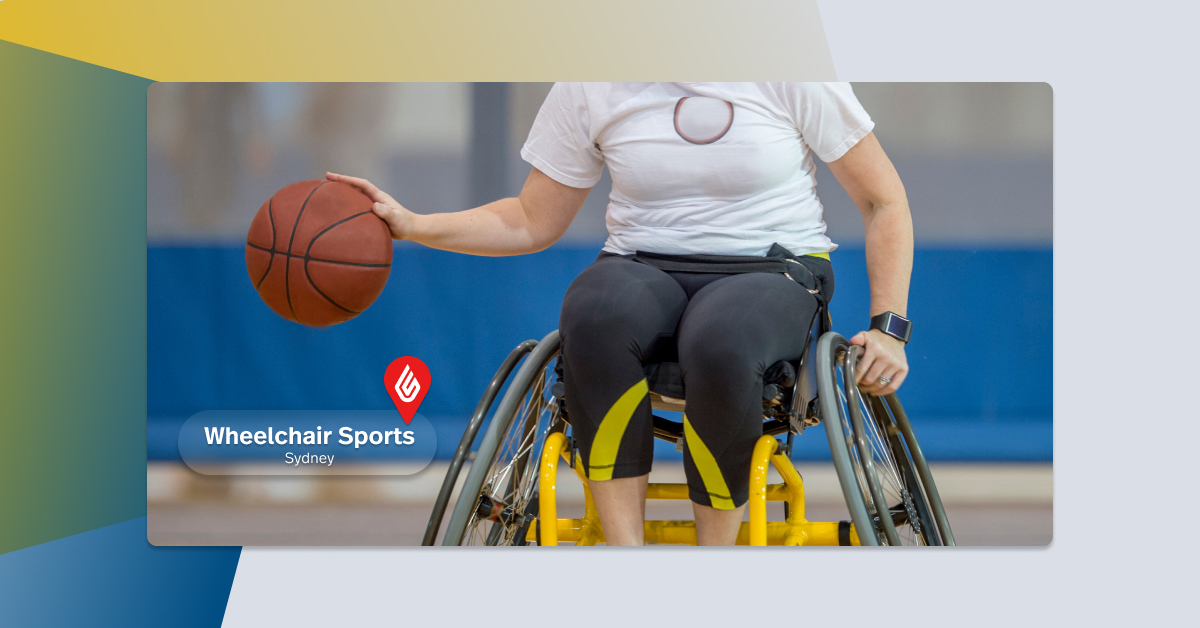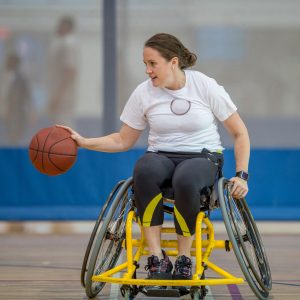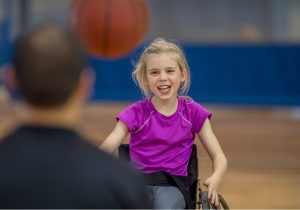The story of Wheelchair Sports NSW/ACT: How a stadium cemented the future of adaptive sports

“You might have heard of Madison D. Rosario? She’s a wheelchair racer. She’s one of our athletes, and Louise Sauvage and Kurt Fearnley, who are some of the best ever.
“Madison’s got a huge profile, so she won the gold medal in Tokyo.”
Wheelchair Sports NSW/ACT has been ahead of its time since its beginnings, allowing both competitors and spectators the type of access that they were so craving for a long time.
But they didn’t stop there.
Thanks to an outlook of always striving for that extra level of inclusivity and greatness, Wheelchair Sports NSWACT have continued to lead the way in how the world sees adaptive sports and the athletes that compete in them.
It’s an incredible journey, and we sat down with David Krantz, General Manager of Kevin Betts Stadium, to talk about it.
Ahead of their time
Our story begins 40 years ago, in a time where finding venues to host adaptive sports was somewhat of a challenge.
Not wanting to wait for the world to catch up with their ambitions, Wheelchair Sports Australia took matters into their own hands.
“In the early 1980s, Wheelchair Sports were running a wheelchair sports games in New South Wales and they found there was a huge challenge around accessibility of venues; One, trying to find a venue that was accessible, and two, to be able to book it out and be able to run the competition.
“So they partnered up with Rotary, and a couple of other people, and actually built their own stadium in 1986, which was really exciting, alongside Blacktown city council.”
Wheelchair Sports NSW/ACT had itself a home.
“It was certainly a group community idea. So there were obviously the staff, and volunteers, and board of Wheelchair Sports at the time who were looking for that space. But then, yeah, partnered up with Rotary, I can’t remember what the Rotary number is, but there’s a Rotary group out there that really got behind, and supported, and fundraised hundreds of thousands, if not millions, of dollars to help build the stadium.”
 In Kevin Betts Stadium, Wheelchair Sports NSW/ACT had given itself not only a legacy within the history of adaptive sports in Australia, but also a prophecy on how future stadiums would be designed.
In Kevin Betts Stadium, Wheelchair Sports NSW/ACT had given itself not only a legacy within the history of adaptive sports in Australia, but also a prophecy on how future stadiums would be designed.
“Thirty four years on, what’s amazing about that stadium is it isn’t just the home for wheelchair sport anymore. Obviously stadiums around the state have become considerably more accessible, so now that stadium was actually, in a way, ahead of its time.”
A game for everyone
You might have noticed a term being used: adaptive sports. This is an initiative close to David’s heart—a way for both he and Wheelchair Sports NSW/ACT to continue developing their vision further, putting the emphasis where it needs to be for maximum accessibility.
“So it’s a big thing that we’re trying to change at the moment. The language was always around disability sports or power sports. That’s, sort of, putting the athlete first and so now we’re trying to change that mindset and focus on the sport, so the sport is adapted, and anyone can really play it.”
If there is a single idea to encapsulate the vision of Wheelchair Sports NSW/ACT, this is it. Sport is for everyone, not just the elite few.

That’s not to say that Wheelchair Sports NSW/ACT is against catering to elite-level athletes—far from it. It proudly boasts amongst its alumni some of the biggest names in adaptive sports, proving a heritage to rival any organisation.
“You might have heard of Madison D. Rosario, she’s a wheelchair racer. She’s one of our athletes, and Louise Sauvage and Kurt Fearnley, who are some of the best ever.
“Madison’s got a huge profile. She won the gold medal in Tokyo.”
Sharing the spotlight
With such high-profile members, it makes sense to align their underlying ethos with an event which aims to shine the limelight on anybody that wishes to bask in its glow, participant or otherwise.
“As a spectator, there’s always great events.
“On Australia Day we have a big wheelchair race around The Rocks and we get so many people living with disabilities coming down, and cheering that on.
“It’s called the Oz Day 10k.”
“It’s a free event. It was actually televised for the first time on Channel Seven this year, so you can watch it on Seven Plus for the next two years, so it’s worth checking out and it’s a great way to start the day.”
A space for everyone
As such a forward-thinking organisation, Wheelchair Sports NSW/ACT, and Kevin Betts Stadium know that accessibility goes both ways. Having been on the other side of the story with regards to finding a place where their local community can gather and enjoy playing the sports they love, their doors are open to anybody, regardless of their abilities.
“Running or able-bodied basketball and volleyball (would) be our two biggest sports.
“We’ve got state-based organisations like Basketball New South Wales or Volleyball New South Wales. And we’ve got local community clubs. The City of Blacktown Basketball Association would be one of our bigger hires. And then we’ve got club teams that would play in the City of Blacktown’s competitions that train out of our venue.”
Again, limitations don’t exist with Wheelchair Sports NSW/ACT. Their facilities are there to cater for their community, whether they’re a member of a league or not.
“We do school sports but every Thursday, there’s a weekly tournament. So a bunch of girl’s schools come in to play basketball, sort of like a bit of a season.
“The last one is just social hirers that come down with a bunch of mates and play some volleyball or some basketball or soccer.”
Giving adaptive sports a future
It’s clear that Wheelchair Sports NSW/ACT and Kevin Betts Stadium have become integral parts of their local community. And with their home, they’ve given themselves the means to keep growing and keep giving back, and the luxury of doing so on their terms.
“It’s actually a social business, so it’s a for-profit business and all of the profits get reinvested back into Wheelchair Sports to put on different adaptive sports for people living with disabilities.
“Giving developing athletes and juniors the opportunity to participate would be, without a doubt, the highlight.”
With organisations like Wheelchair Sports NSW/ACT running the show, the next Madison D. Rosario is probably already shining under their stewardship.

News you care about. Tips you can use.
Everything your business needs to grow, delivered straight to your inbox.


